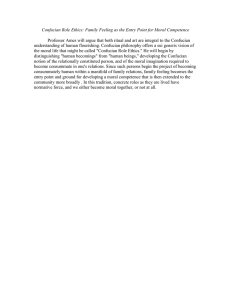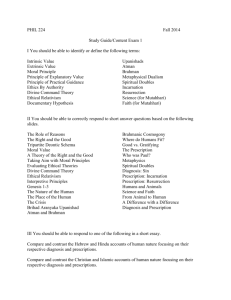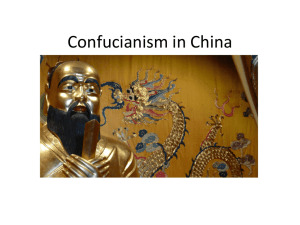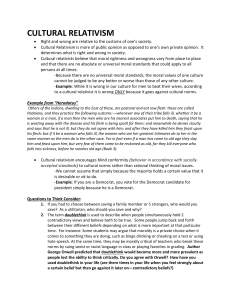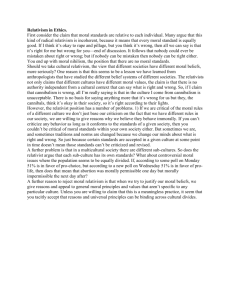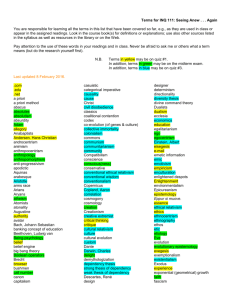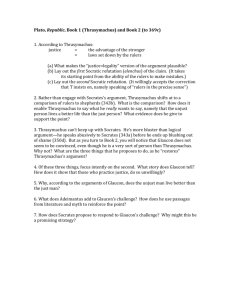Content Exam #1
advertisement
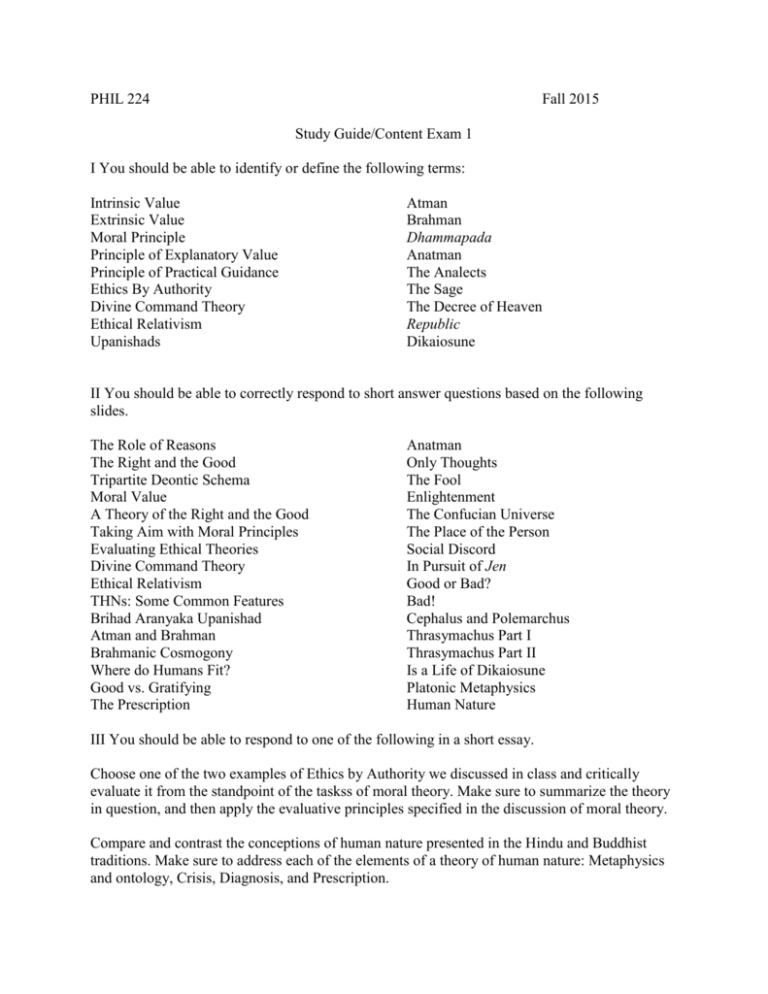
PHIL 224 Fall 2015 Study Guide/Content Exam 1 I You should be able to identify or define the following terms: Intrinsic Value Extrinsic Value Moral Principle Principle of Explanatory Value Principle of Practical Guidance Ethics By Authority Divine Command Theory Ethical Relativism Upanishads Atman Brahman Dhammapada Anatman The Analects The Sage The Decree of Heaven Republic Dikaiosune II You should be able to correctly respond to short answer questions based on the following slides. The Role of Reasons The Right and the Good Tripartite Deontic Schema Moral Value A Theory of the Right and the Good Taking Aim with Moral Principles Evaluating Ethical Theories Divine Command Theory Ethical Relativism THNs: Some Common Features Brihad Aranyaka Upanishad Atman and Brahman Brahmanic Cosmogony Where do Humans Fit? Good vs. Gratifying The Prescription Anatman Only Thoughts The Fool Enlightenment The Confucian Universe The Place of the Person Social Discord In Pursuit of Jen Good or Bad? Bad! Cephalus and Polemarchus Thrasymachus Part I Thrasymachus Part II Is a Life of Dikaiosune Platonic Metaphysics Human Nature III You should be able to respond to one of the following in a short essay. Choose one of the two examples of Ethics by Authority we discussed in class and critically evaluate it from the standpoint of the taskss of moral theory. Make sure to summarize the theory in question, and then apply the evaluative principles specified in the discussion of moral theory. Compare and contrast the conceptions of human nature presented in the Hindu and Buddhist traditions. Make sure to address each of the elements of a theory of human nature: Metaphysics and ontology, Crisis, Diagnosis, and Prescription. On the basis of a summary of the Confucian account of the nature of the universe and the place of the human within it, present and defend either Mencius’s or Hsun Tzu’s account of the basic orientation of human nature. Which ever one you choose to defend, make sure to include discussion of the other’s position and why it is incorrect. Evaluate Plato’s rejection of the account of dikaiosune offered by Thrasymachus. Is he right to reject this account? Why or why not?
